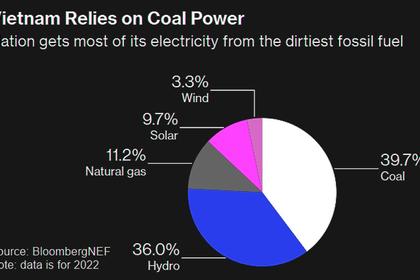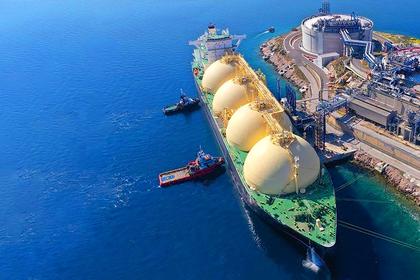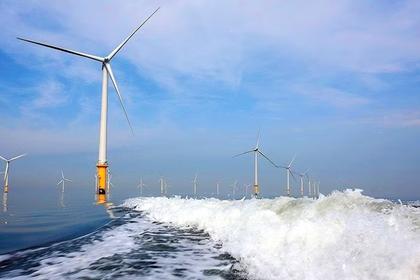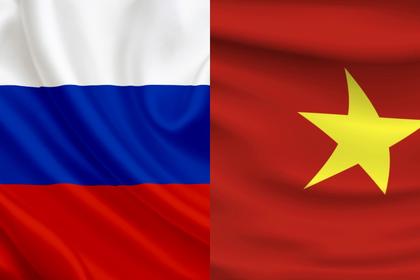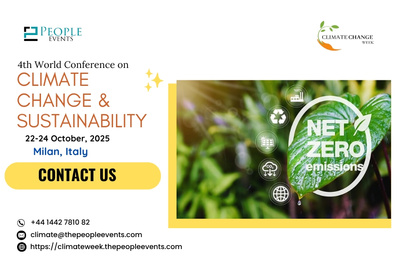
RUSSIA, VIETNAM COOPERATION

RPA - June 18, 2024 - Russian President Vladimir Putin is travelling to Vietnam on June 19-20 to meet Vietnam’s General Secretary Nguyen Phu Trong, President To Lam, Prime Minister Pham Minh Chinh, and National Assembly Chairman Tran Thanh Man.
The parties plan to discuss the current state of and prospects for the continued development of a comprehensive strategic partnership between Russia and Vietnam in the trade and economy, scientific and technology, and humanitarian fields, and exchange opinions on relevant items on the international and regional agenda. Based on the outcomes of the talks, Russia and Vietnam will adopt a joint statement and sign a number of bilateral documents.
In this article we provide an overview of Russia’s 2024 trade and development issues with Vietnam.
Vietnam’s foreign policy is based on balancing which allows it to maintain room for manoeuvre. In this regard, Hanoi tries to take simultaneously into account the interests of Moscow, Washington, and Beijing. So far this worked to Vietnam’s benefit making the country more attractive to foreign powers such as Russia. Given the state of affairs between Russia and the collective West, Moscow is pushing for a re-orientation of trade to Asia, and Vietnam is expected to play a pivotal role in facilitating this shift. Yet not all is proceeding smoothly. Similar to Russia’s trade with Thailand, the bilateral turnover has fallen sharply due to the effects of the conflict in Ukraine. Putin’s visit will look at rectifying this and looking at how Vietnam can better collaborate with the Eurasian Economic Union.
Russia-Vietnam Bilateral Trade
Vietnam signed an agreement to join the Eurasian Economic Union (EAEU) free trade zone in 2015 and became the first state from ASEAN to join the Moscow-led bloc. According to the agreement, Vietnam’s average import tariff rate for EAEU countries will decrease from 10% to 1% by 2025.
Bilateral trade between Russia and Vietnam reached a record high of US$7.1 billion in 2021, an increase of 25.91% (US$1.46 billion) compared to 2020. However, due to sanctions imposed on Russia as a result of the Ukraine conflict, the bilateral trade volume halved at the end of 2023 to about US$3 billion. This follows the dynamic set in 2022 when the trade turnover between Vietnam and Russia in 2022 decreased by 35.4%.
As to the structure of the bilateral trade, food products from Russia that are in growing demand in Vietnam include condensed milk, honey, confectionery, pasta, seeds, and sunflower oil. Additionally, Russia is also a critical exporter of modern weaponry to Vietnam making the country the largest buyer of Russian weapons (around 70% of the country’s arms comes from Russia) in Southeast Asia. Vietnam exports a range of goods to Russia, including electronics, textiles, agricultural products (like coffee, pepper, and seafood), and footwear.
Russia’s exports to Vietnam primarily consist of raw materials, machinery, and energy products. Russian officials argue that strengthening economic cooperation with Vietnam will be facilitated by the creation of a business dialogue with the EAEU Business Council. They also regularly talk about the use of national currencies in mutual trade, the possibility of paying for goods and services, as well as withdrawing cash in Vietnam using Mir cards. Another area of activity are business forums with the most recent held in April in Hanoi which attracted more than 200 enterprises from Russia and Vietnam.
Russia – Vietnam Bilateral Investments
Before Covid-19, Russia was Vietnam’s 26th largest foreign investor with 123 projects valued at up to US$933 million. By February 2022, Russian investments grew to US$953 million across 151 projects. By the end of the first quarter of 2023, Russia had 171 businesses in Vietnam with the capital surpassing US$970 million, but still positioned as the 28th top investor. Most of the Russian investments are focused on natural resource extraction.
In contrast, Vietnam has invested in 17 projects in Russia with a total worth of US$1.63 billion (which is 7% of all outbound Vietnamese investment). One of the central projects of Russian-Vietnamese cooperation was the construction of the Ninh Thuan-1 nuclear power plant, but in November 2016, the Vietnamese government suspended the project. Yet with the rapid growth of electricity consumption in Vietnam, the demand for nuclear technology in Hanoi has become relevant again, and Hanoi may return to the Ninh Thuan-1 nuclear power plant project. Another positive development is that earlier in 2023 a milestone agreement was reached on the creation of the Center for Nuclear Science and Technology in Vietnam between Rosatom and the Vietnam Institute of Atomic Energy.
With the departure from the Russian market of such Western food producers as the Finnish dairy company Valio, an alternative solution is Vietnamese products, and this is a developing trend. For instance, the Vietnamese company TH-True Milk, the largest modern manufacturer of dairy and agricultural products in the country, announced plans to invest around $2.7 billion in the Russian economy. This involved the construction of farms and processing facilities in the Moscow region, Kaluga and Tyumen regions, Bashkiria, and Primorsky Krai by the end of 2025. Vietnam’s per capita milk consumption is growing with the dairy market expected to grow from 159.6 kilotons in 2021 to 375.1 kilotons by 2030. The Primorskie project began earlier this year.
Another area of potential Russian investment in Vietnam is cybersecurity services. Russian technologies from large companies such as Kaspersky Lab and Rostelecom, or lesser-known Russian IT firms that are not subject to Western sanctions, can become an important auxiliary tool for Vietnam.
One of the most prominent areas of economic cooperation between Russia and Vietnam is in the oil and gas sector. Companies like Gazprom and Rosneft from Russia have collaborated with PetroVietnam on several projects, both within Vietnam and in Russia. There are also Zarubezhneft and NOVATEK which are interested in Vietnam.
A notable collaboration between the two countries was the joint venture between Kamaz and Vinamotor to produce Kamaz trucks in Vietnam. Russian companies have also shown interest in developing Vietnam’s railway infrastructure. Past projects have included modernizing the railway line connecting Hanoi and Ho Chi Minh City.
Presently Russia and Vietnam are also interested in developing seaborn connectivity and the natural geographic area for this is Russia’s Far East. The success would limit the deficiencies the two countries have historically had – geographic constraints that precluded closer and quicker trade relations. As such, although Russia’s trade relations with Vietnam have taken a hit – they can also be expected to bounce back as Russia’s Southeast Asian supply chains adapt.
Vietnam’s 2023 GDP growth was 5.05%. The World Bank forecasts its GDP is set to grow at 5.5% in 2024 and 6% in 2025.
-----
Earlier:
